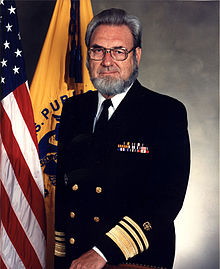|
Back to 2014 Annual Meeting Abstracts
C. Everett Koop: Pioneer in Pediatric Surgery and U.S. Surgeon General
Sutchin R. Patel, M.D.1, Peggy Duckett, .2, Anthony A. Caldamone, M.D.3, Douglas A. Canning, MD2.
1University of Wisconsin School of Medicine and Public Health, Madison, WI, USA, 2Children's Hospital of Philadelphia, Philadelphia, PA, USA, 3The Warren Alpert Medical School of Brown University, Providence, RI, USA.
BACKGROUND: Dr. C. Everett Koop was a pioneer in the young field of pediatric surgery while he was surgeon-in-chief at the Children’s Hospital of Philadelphia (CHOP) and later served as the U.S. Surgeon General.
METHODS: The scientific literature, texts, interviews and newspaper articles were reviewed for sources pertaining to Dr. Koop.
RESULTS: C. Everett Koop (1916-2013) was born in Brooklyn, New York. He attended Dartmouth College, earned his medical degree from Cornell Medical College in 1941 and completed his residency at the University of Pennsylvania Hospital. Immediately after finishing residency he was offered the position as surgeon-in-chief at CHOP which he held until 1981. While at CHOP he would establish the nation’s first neonatal surgical intensive care unit in 1956 and performed groundbreaking surgical procedures on conjoined twins, inventing techniques which are commonly used today for infant surgery. He pioneered many new surgical procedures including the colon interposition graft for infants with esophageal atresia. He would also become the first editor of the Journal of Pediatric Surgery in 1966.
President Ronald Reagan nominated Dr. Koop for the post of U.S. Surgeon General in 1981. Many politicians opposed the nomination due to Dr. Koop’s very conservative views and strong anti-abortion beliefs; however he was confirmed. Koop resisted pressure from the Reagan administration to state that abortion was psychologically harmful to women, insisting that it was a moral issue and not a public health issue. Dr. Koop researched the effects of smoking and his first official act was to issue the 1982 Surgeon General’s Report on Smoking and Health, the most authoritative statement on the connection between smoking and cancer of the lung, esophagus, stomach, bladder and kidneys. He worked tirelessly to warn the public against the health hazards of smoking for both active and passive smokers and launched the Campaign for a Smoke-Free America by the year 2000. He helped the nation face the AIDS pandemic, educating the public on prevention and protection, arguing against mandatory testing and quarantine of the infected.
CONCLUSIONS: Dr. C. Everett Koop was a pioneer in pediatric surgery and has been widely regarded as the most influential surgeon general in American history. He is remembered for his emphatic warnings about the dangers of smoking and on educating the American public about AIDS.

Back to 2014 Annual Meeting Abstracts
|

|

